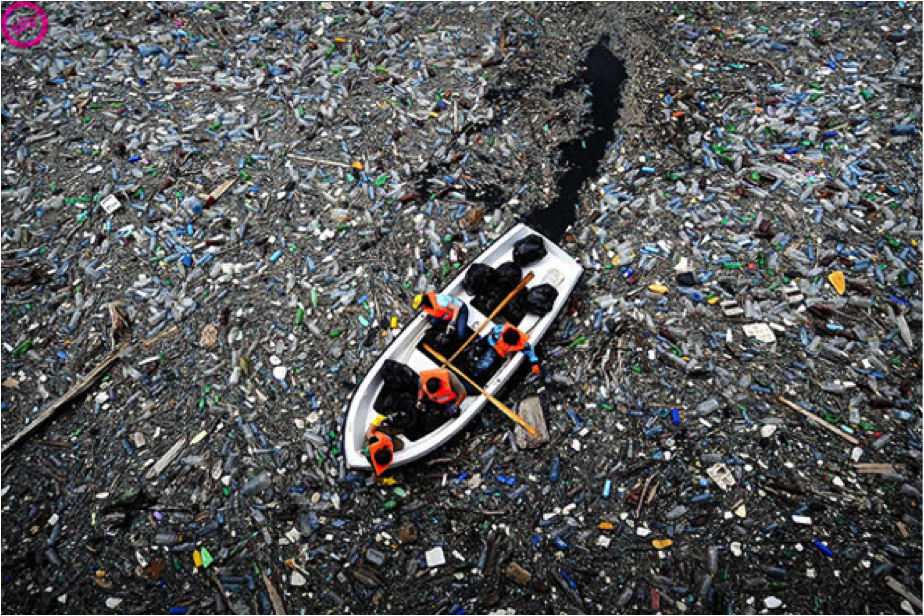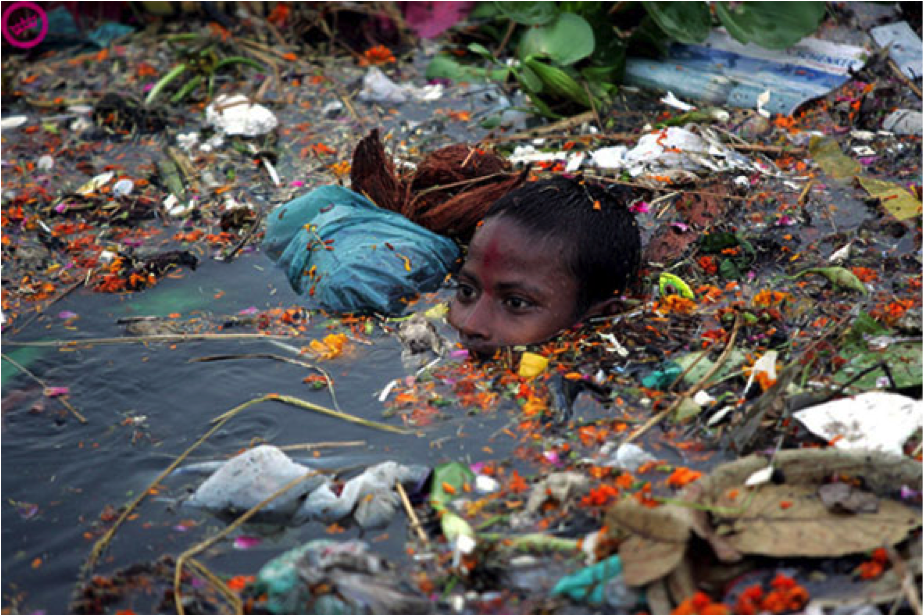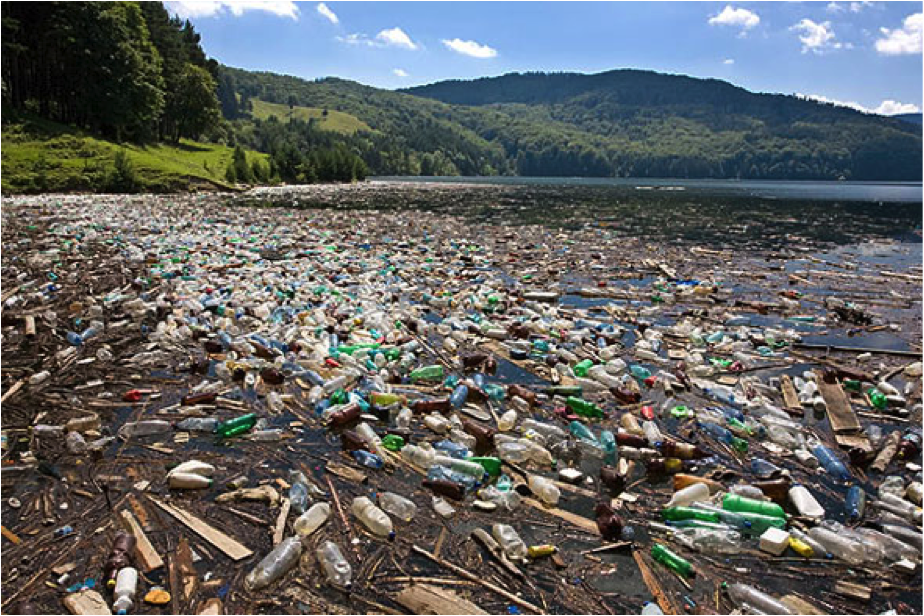Searious Business: Making businesses reduce their own plastic waste

Worldwide, only 9% of all plastic waste is recycled. Every minute of every day, 20,000 kg of plastics leaks into our ocean. About 80% of all sea birds have plastic in their stomachs; one in four of all fish awaits the same fate. These figures illustrate what we call the worldwide ‘plastic soup-problem.’ Willemijn Peeters, founder and director of the Dutch social enterprise Searious Business, decided to not stand by idly any longer, but to act.

Krichim, Boat in plastic, April 25, 2009. Photo: Dimitar Dilkoff
Starting the start-up
Searious Business was founded a year ago. Under the motto ‘don’t mix what you can’t fix’, they try to make sure that the plastic waste produced by people does not reach the ocean. The aim is thus to develop solutions at the source. Peeters: “What Boyan Slat (Ocean Cleanup, ed.) does is really good, but he is only able to take out the floating plastic. The largest part already sank to the bottom. More people have to work together actively to prevent the plastic from getting in the ocean in the first place.”
Searious Business focuses on a positive approach. The first step is to gather and meet with companies and other stakeholders. Together they try to make their business management more sustainable and more efficient at the same time. This for example involves reducing their plastic waste output or making sure companies use less plastic from the start.
By focusing on process efficiency Searious Business creates economic advantages for businesses. For this reason, they are usually recipient for the proposed ideas. However, they often have no idea where to start. Plastic is so cheap that companies don’t know how much it costs, what types and how much they are using. Peeters: “Often, simply to buy recycled plastic is not necessarily cheaper. However, companies can reach substantially higher profit margins if they present a new product with a better story. We can help them with the ways in which they want to do that, by maintaining a positive tone and focusing on the transformation of companies.”

Photo: Manan Vastsyayana
A multi-level approach: going ‘glocal’
For over fifty years, the amount of plastic leaked into the ocean has increased dramatically. Peeters: “About 80% of it comes from sources on land. This not only involves big plastic- or garbage bags, but also tiny pieces called microplastics. You can find microplastics in packaging, paint, car tyres, cosmetics, clothing, and many more things. These cause equally substantial damage.”
The plastic soup problem is one with great magnitude and complexity. To acknowledge this, Searious Business has to address a wide variety of sectors and products. They have successfully adopted a number of necessary projects on a regional level. Culemborg Circulair for example focuses on keeping plastic materials in the municipality of Culemborg ‘in the loop’ by recycling or re-using them. Another example is Eindhoven for a living ocean, where Searious Business raises awareness on the issue. They also cooperate with national and international businesses and governments, water treatment companies and other stakeholders.
The ‘Plastic Coop’ was set up especially with producers that want to think forward and move forward. This means that they understand the importance of re-using raw materials rather than discarding them. Also: “Research shows that a circular economy is not only better for our climate. In the Netherlands it would also be a source for more income (€7,3 billion per year) and jobs (54,000) by the year 2023.”

North America, touched landscape. Photo Source: photobucket
Future ambitions
Searious Business plans to extend their work, by extending their file of companies, businesses and stakeholders nationally as well as internationally. Are you already becoming excited? Throughout the year Searious Business organizes many events that you can attend.
The organization also welcomes new interns, soon to be- or just graduated students who want to work in the field of the circular economy. Peeters: “We are always open to new proposals from young and proactive people. In 2016 we had students from Leiden University doing a cost-benefit analysis, and a trainee from TU Delft. In the near future another student from Wageningen University will start an internship.”
So whenever this profile applies to you, don’t hesitate to visit the Searious Business Facebook– or Twitter page, or contact the organization through: connect@seariousbusiness.com
